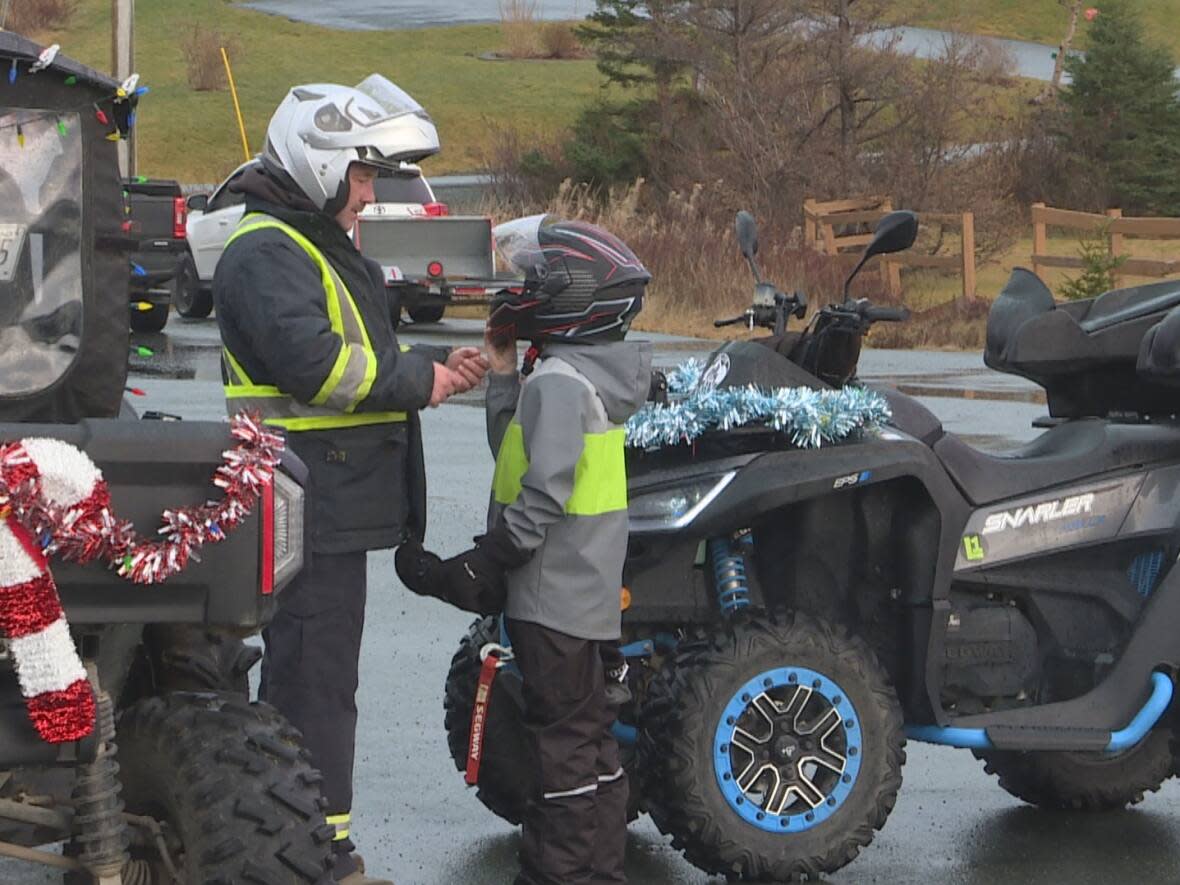Despite tighter safety rules, N.L. RCMP reports uptick in off-road deaths

The RCMP in Newfoundland and Labrador is reporting a slight increase in the number of off-road deaths in 2022, despite a new law requiring riders to wear helmets and use seatbelts.
There have been 11 fatalities — one more than in 2021 — linked to wrecks involving off-road vehicles such as ATVs, UTVs and snowmobiles so far this year, and five of those occurred after strict new helmet and seatbelt laws came into effect last spring.
And of those five deaths that occurred after the new Off-Road Vehicles Act and Regulations came into force on May 19, three of the victims were not wearing helmets.
"We still have issues where people are not wearing the gear," said RCMP Cpl. Jolene Garland, who speaks for the national police force in Newfoundland and Labrador.
Of the 11 deaths this year, six involved ATVs or UTVS, while five involved snowmobiles. Seven of the victims were not wearing helmets, and three involved impaired operation.
"We continue to see the same mistakes, the same poor choices being made over and over again. Lack of helmet use. Drinking and driving or drugs and driving. These things don't mix," added Garland.
The ages of the victims ranged from 25 to 81, and all but one of those who died were men.
In 2021, there were 10 deaths linked to off-road vehicles.
So it raises the question: has the legislation failed to achieve its intended goals of improving off-road safety and reducing fatalities?
Garland doesn't believe so, and said the rules are still new and a longer timeframe is needed before drawing any conclusions about the effectiveness of the new rules. She also believes compliance will increase over time as the rules become more ingrained in the culture of off-roading.
"I think a lot of people are abiding by it," said Garland, who believes some people are alive today because they followed the helmet and seatbelt rules.
The most recent data covers a seven-month period in which it is now mandatory to wear a helmet while operating or occupying all off-road vehicles, and wear seatbelts when riding an off-road vehicle in which safety belts were installed by the manufacturer.

The new laws were greeted with a mixture of support and opposition, and garnered traction following an especially deadly year in 2020, when 20 people died on the trails. The spike in deaths two years ago was linked to the public health lockdowns that accompanied the arrival of the COVID-19 pandemic, and a surge in demand for off-road vehicles as citizens flocked to the outdoors.
The off-road landscape has changed in recent times with the increasing popularity of utility terrain vehicles, better known as side-by-sides. Unlike ATVs and the traditional straddle seating position, occupants of UTVs are seated side-by-side, and these larger vehicles include enhanced safety features such as seatbelts and roll cages.
Many UTV users opposed the helmet law because of these added safety features, but Cpl. Garland said a lot can go wrong during a collision or a rollover.
"If you do roll over or collide there is a great chance that something could come within the vehicle itself, whether that be a tree stump or a rock … There's a reason why these safety rules are in place," she said.
The off-road riding community, meanwhile, is adapting to the new rules, said Dean Layman, president of Avalon ATV.
When riders buy a new ATV or UTV, he said, a helmet purchase is now part of the process.
"It's common sense," said Layman.


